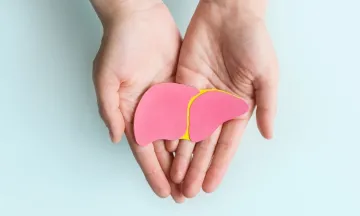Happy Diwali! Better Safe than Sorry
Homeopathy Treatment
October 10, 2017
, Last updated: May 29, 2025
The festival of Diwali is a very special day for millions of Indians. People start preparing for the celebrations a few weeks in advance, but as the day approaches, we should bear in mind a few important tips to enjoy the festivities without compromising on our health.
- In times of increasing air and noise pollution that we are witnessing today, it is important that we light firecrackers responsibly. Crackers carry a huge risk of burn injuries, so a few precautions are necessary. Wear slippers while lighting them and always light it from a safe distance. Do not bend over or go very near a flickering cracker or it may explode suddenly. Children should be allowed to burn firecrackers only under adult supervision.
- It is recommended that you wear cotton clothes and stay away from synthetic material while bursting crackers. Instruct your children about their correct usage and educate them about the appropriate ways to enjoy the festivities.
- Do not light firecrackers in crowded areas or confined spaces, under trees, inside parking lots and garages or on the roadside, because that might prove to be dangerous for bystanders and the general public. There is also the risk of vehicles catching fire.
- Always purchase firecrackers from registered manufacturers and known shops and ensure that you go through the instructions carefully. Quality firecrackers reduce the risk of a dangerous mishap. Remember to wash your hands and feet afterwards as firework material can be toxic and bad for the health.
- In case of a mishap, keep certain first aid measures in mind. Loosen all tight clothing. Splash tap water (not ice water) on the affected area. Repeat the process till the burning sensation reduces. In case of serious burns do not remove the clothing. Just wrap the patient in clean clothes and rush to the nearest hospital. In case the eye is affected, wash it with cold water and avoid rubbing it. Then consult an ophthalmologist.
- Persons suffering from asthma, bronchitis and other respiratory ailments should start taking precautions several days before the festive season itself. Crackers are made up of highly toxic heavy metals such as copper, cadmium, lead, manganese, zinc, sodium and potassium. These metals, if present in the air, can trigger an asthma attack in a patient causing severe headache and respiratory problems apart from chronic cough. Avoid highly polluted areas, sudden temperature changes, physical stress and any sources of allergy which could also be strong incense sticks or certain types of perfumed candles. Seek medical help immediately if you experience any discomfort or breathing issues.
- Sweets are hard to resist during Diwali. However, it is also important to remember the fact that Indians are genetically prone to diabetes and, therefore, it is advisable to keep the intake of sugar and starch minimal. Avoid sweets that use chemical preservatives as they can cause damage to our kidneys, liver and can also cause asthma attacks and some forms of cancer in a few cases.
- Try to avoid sweets that have ‘silver’ coating as foils are often adulterated with aluminum, a hazardous metal which can accumulate in our body tissues.
- While selecting gifts for your loved ones this Diwali, try fruit baskets or low-calorie sweets and snacks instead of ghee-laden sweets.
- Post-Diwali celebrations, be responsible and arrange to clear up all the mess caused by bursting crackers, diyas, floral and paper decorations and wax residues the next morning in and around your apartment and building premises.
Make this Diwali a safe and happy time for you and your loved ones!




